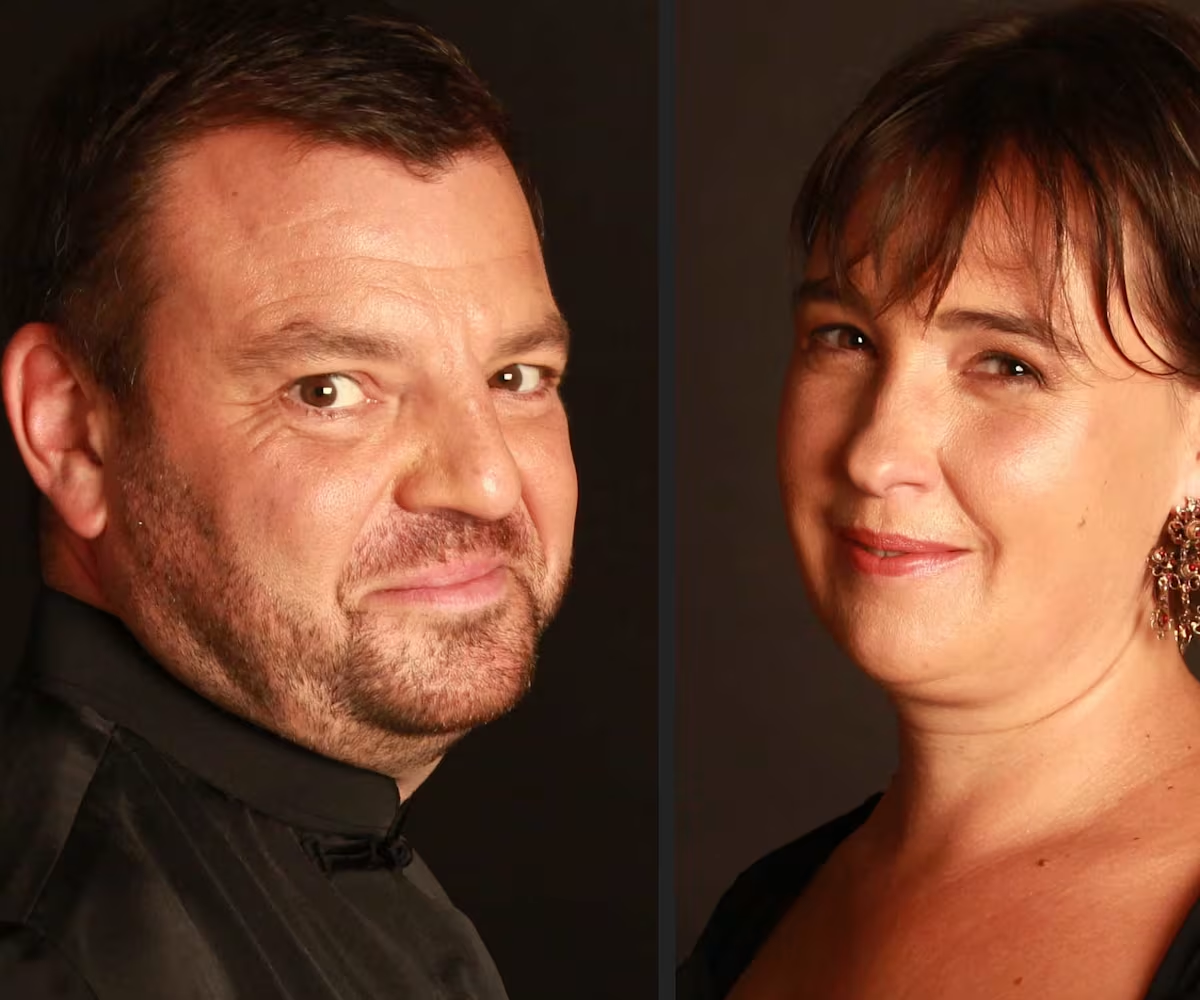Kate Semmens and Steven Devine
The Songs of the Grove

William Boyce (1711 - 1779) Sylvia the Fair
Thomas Arne (1710-1778) Isabel
Thomas Arne Dione
Maurice Greene (1696-1755) Voluntary II
William Jackson (1730-1803) What shepherd or nymph of the grove
William Jackson To fairest Delia’s grassy tomb
James Hook (1746 - 1827) Voluntary No 8 in C Major
Thomas Linley (1733 - 1795) Think not my love when secret grief
Thomas Linley Alas from the day my poor heart
John Blow (1649 - 1708 Mortlack’s Ground
Stephen Storace (1762 - 1796) The curfew tolls the knell of parting day
Maurice Greene (1696 - 1755) Vivace from Sonata in B flat
Maurice Greene Orpheus with his lute
By the end of the 17th century, English song had truly found its own distinct form. The growing taste for ‘commercialised leisure’ led to the development of the Pleasure Gardens in the early 18th century. These were places where all classes of people were able to go, to stroll within beautiful avenues, to eat and enjoy music. The egalitarian attitude towards ticket prices meant that a noble man may find himself strolling beside his servant. Music involved large orchestras with guest appearances by the current favourite singers of the day. Composers and performers were stimulated by the rich environment, meeting with their peers, colleagues and rivals. The most commercially minded composers were prolific in writing songs that could be easily accessible and transferrable to the domestic environment to be sold as sheet music after performances. The songs reflect the city’s pastoral ideal of love in the countryside and this became a popular taste across music of the period. Kate and Steven perform songs which tell tales of the nymphs and shepherds of the grove, their love, lust and loss.
 The Music Summer School and Festival
The Music Summer School and Festival Mon, 29 July 2024
Mon, 29 July 2024 Gresham's School, Holt
Gresham's School, Holt 5:15pm
5:15pm £14, under 18 £10
£14, under 18 £10
Full Event Details

The Songs of the Grove
William Boyce (1711 - 1779) Sylvia the Fair
Thomas Arne (1710-1778) Isabel
Thomas Arne Dione
Maurice Greene (1696-1755) Voluntary II
William Jackson (1730-1803) What shepherd or nymph of the grove
William Jackson To fairest Delia’s grassy tomb
James Hook (1746 - 1827) Voluntary No 8 in C Major
Thomas Linley (1733 - 1795) Think not my love when secret grief
Thomas Linley Alas from the day my poor heart
John Blow (1649 - 1708 Mortlack’s Ground
Stephen Storace (1762 - 1796) The curfew tolls the knell of parting day
Maurice Greene (1696 - 1755) Vivace from Sonata in B flat
Maurice Greene Orpheus with his lute
By the end of the 17th century, English song had truly found its own distinct form. The growing taste for ‘commercialised leisure’ led to the development of the Pleasure Gardens in the early 18th century. These were places where all classes of people were able to go, to stroll within beautiful avenues, to eat and enjoy music. The egalitarian attitude towards ticket prices meant that a noble man may find himself strolling beside his servant. Music involved large orchestras with guest appearances by the current favourite singers of the day. Composers and performers were stimulated by the rich environment, meeting with their peers, colleagues and rivals. The most commercially minded composers were prolific in writing songs that could be easily accessible and transferrable to the domestic environment to be sold as sheet music after performances. The songs reflect the city’s pastoral ideal of love in the countryside and this became a popular taste across music of the period. Kate and Steven perform songs which tell tales of the nymphs and shepherds of the grove, their love, lust and loss.
Venue Details & Map

Location
Gresham's School, Holt
Grove Lane, Holt, NR25 6EA, United Kingdom

